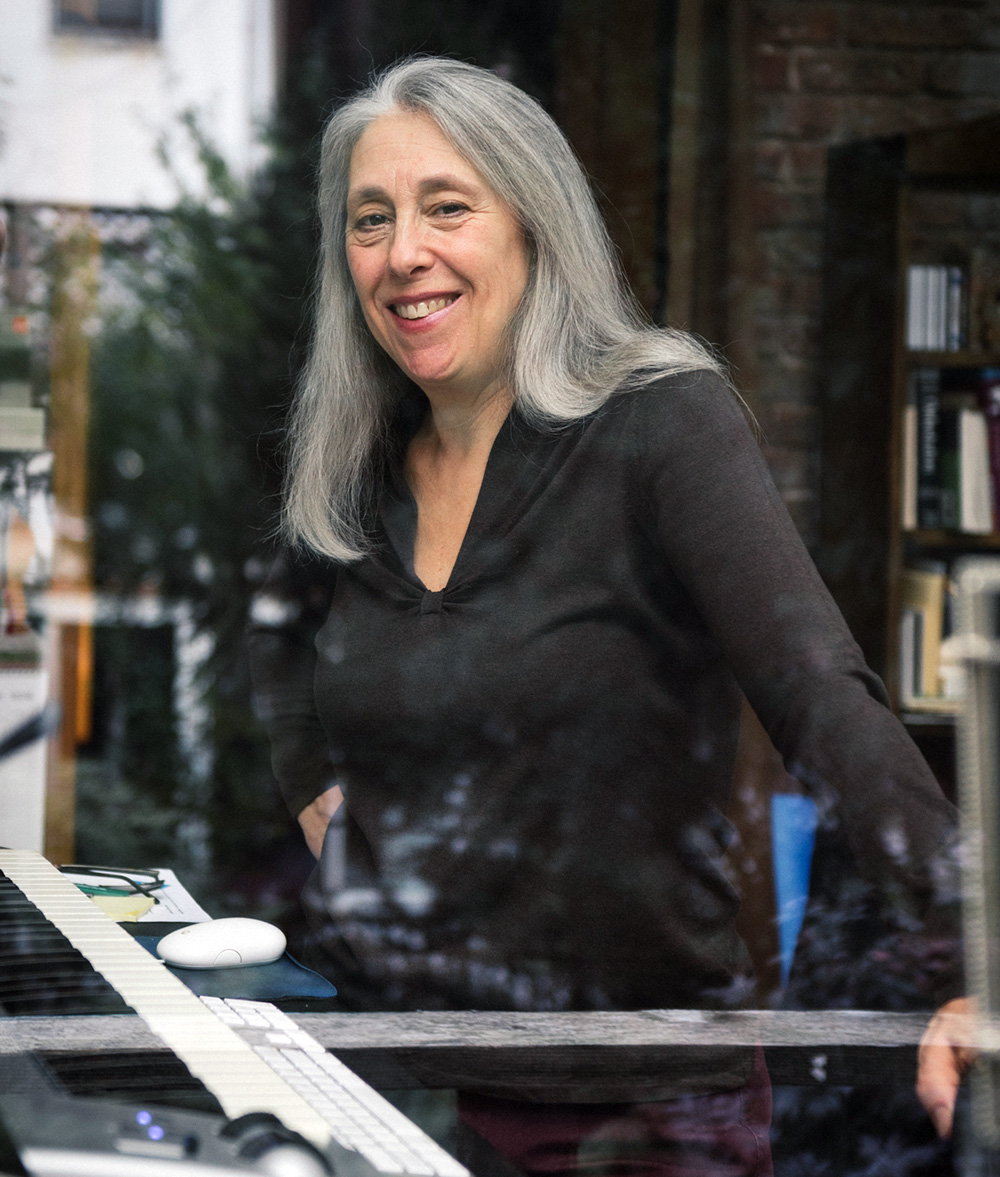
Kansas City native and internationally acclaimed composer Susan Kander comes home this month for a program of her original, contemporary music. She received her B.A. in Music at Harvard in 1979 and was a playwright until returning to music in the mid-1990s. In 2015, after composing busily for 20 years, she decided to “blow things up,” she says, by finally attending graduate school in composition. She studied with Du Yun and Huang Ruo at Purchase Conservatory, re-arranging the furniture in her mind and earning her M.M. in Composition in 2017. Those two years produced adventurous new works for both orchestra and chamber ensemble. Her works can be found on Soundcloud and Youtube. She is a Fellow of the MacDowell Colony. Her music has been recorded on the MSR, Navona and Loose Cans labels.
Kander’s dwb—Driving While Black, a chamber opera in conjunction with the University of Kansas School of Music, will be performed on January 25 at 7:30 p.m. at the 1900 Building at Shawnee Mission Parkway and State Line Road. The opera features soprano Roberta Gumbel, who wrote the opera’s riveting, autobiographical libretto. Also on the program that evening is the world premiere of Kander’s song cycle based on poems by the late and beloved Kansas City poet Michelle Boisseau, featuring soprano Victoria Botero, violinist Jacob Ashworth, New Morse Code: cellist Hannah Collins and percussionist Michael Compitello.
As the late Robert Starer once wrote in the New York Times, “Opera is still the ultimate challenge and the ultimate achievement in a composer’s life. It combines all the other arts; the composer is in control, which he is not when writing for dance or providing incidental music for the theater.” What is it about this medium that fascinates you?
Actually, although my B.A. was in music I was a playwright for many years. When I moved into music it was by writing operas. With two children, I perceived a need for educational operas that were experiential—where kids could be in and do operas that were pertinent to them rather than have classics put in the Vegomatic and pre-digested for them. Starer’s observation is completely true, but I have a slightly different perspective on it. I was attracted to opera in part because a playwright only has so many tools for controlling and shaping the realization of a particular line or scene or emotional moment. Punctuation is the principle means for communicating the rhythm or arc of a spoken line, plus italics, perhaps, or underlining to indicate where to put the accents, how to get from word to word or phrase to phrase. In music, the world of pitch and rhythm is just the beginning of intention. We have a variety of accent marks that mean different things, we have ways of eliding, repeating, emphasizing, or de-emphasizing. We get to very literally map every single verbal or emotional gesture with loads of information for the performer.
And then there’s all the sound that goes on around the delivery of lines that is as or more informative than the delivery of the text itself. There’s still plenty of room for interpretation, but the contours of any given moment are really under the control of the composer in a way a playwright will never experience.
Your new chamber opera, dwb—Driving While Black, is sung by a soprano accompanied by a cellist and a percussionist. If people think of opera as spectacle—elephants walking on a lavish set as multiple voices rise above the orchestra in Aida—how is this more minimalist approach an equally satisfying aesthetic?
Being close to an opera singer is a thrilling physical experience for a lot of people, and opera in intimate spaces delivers that. It becomes very intimate theater and the opera singers of today are usually highly trained as actors as well, so the whole experience is much more visceral, more immediate. Same goes for being near the musicians, something many people never experience, but it brings a wider dimension to the whole dramatic experience. I personally consider opera the greatest team sport going, whether it’s with 100 people on stage and 100 in the pit and 150 backstage techies, or three people onstage and one stage manager. Everyone is breathing together all the time.
What has drawn you to chamber opera, an opera performed with a chamber ensemble rather than a full orchestra?
The current financial state of the arts is prime. But also there’s an interest on the part of both composers and companies to create more socially relevant works that might pique the interest of a far greater variety of potential audiences, and we don’t need elephants for that. A century ago the world of audiences wasn’t so fractured and it doesn’t need to be. Opera isn’t just for rich white people. It hasn’t been exclusively for rich people for 400 years, just as theater in Shakespeare’s day was never aimed exclusively at rich people. Today opera is being used to tell stories for everyone and it’s perfectly doable in a gallery or storefront or small theater that doesn’t have an orchestra pit. We’re putting the musicians in plain sight, even including them, sometimes, into the action of the opera, and we’re telling stories that resonate for all kinds of people. Which is what opera has always done almost from its inception.


